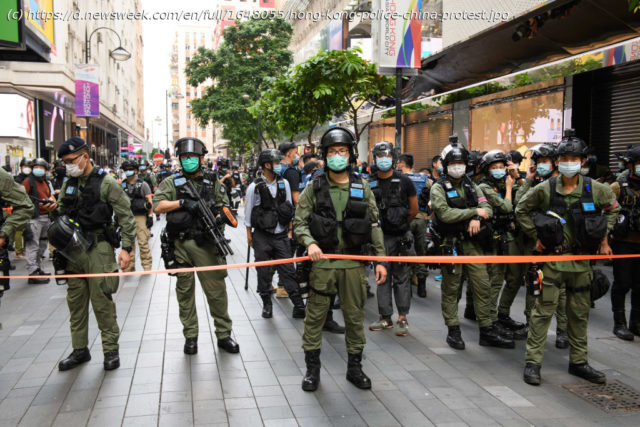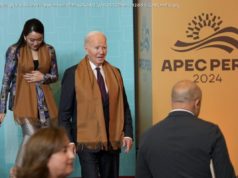While 39 U.N. nations jointly criticized China’s human rights policies in Xinjiang and Hong Kong, nearly 70 countries backed Beijing’s right to safeguard its sovereignty.
A joint statement by 39 countries expressing “grave concerns” about China’s human rights policies in Xinjiang and Hong Kong was swiftly overwhelmed by a series of rebuttals by nearly double the amount of signatories at the United Nations on Tuesday. After German Ambassador Christoph Heusgen addressed the U.N. General Assembly Third Committee on behalf of countries including the United States and United Kingdom, China’s permanent representative Zhang Jun—backed by the likes of Pakistan, Cuba and Russia—fired back a lengthy response, accusing major Western nations of “selective blindness and double standards.” In his letter, Heusgen’s called on Beijing to allow independent observers into Xinjiang, where human rights watchdogs say the autonomous region’s ethnic Uigurs are being detained in large numbers inside so-called “re-education” camps. Heusgen also made mention of Tibet and the Hong Kong National Security Law, elements of which he said “do not conform to China’s international legal obligations,” and would “allow for certain cases to be transferred for prosecution to the Chinese mainland.” “In June 2020, 50 U.N. Special Procedures mandate holders issued an exceptional letter of concern, calling on the People’s Republic of China to respect human rights. We share their grave concerns,” the German envoy said. He added: “On Xinjiang, we are gravely concerned about the existence of a large network of ‘political re-education’ camps where credible reports indicate that over a million people have been arbitrarily detained. “We have seen an increasing number of reports of gross human rights violations. There are severe restrictions on freedom of religion or belief and the freedoms of movement, association, and expression as well as on Uyghur culture. “Widespread surveillance disproportionately continues to target Uyghurs and other minorities and more reports are emerging of forced labour and forced birth control including sterilization.” Heusgen ended by saying: “We call on China to allow immediate, meaningful and unfettered access to Xinjiang for independent observers including the U.
Home
United States
USA — China Nearly Twice As Many Countries Support China's Human Rights Policies Than Are...






